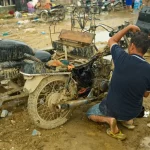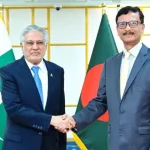
Security Council adopts resolution that aims to weaken group that has seized territory in Iraq and Syria.
The United Nations Security Council has taken a tough line against the Islamic State group in Iraq and Syria, blacklisting six people including the group’s spokesman and threatening sanctions against its financiers and weapons suppliers.
The 15-member council unanimously adopted on Friday a resolution that aims to weaken the Islamic State – an al-Qaeda splinter group that has seized swaths of territory in Iraq and Syria and declared a caliphate – and al-Qaeda’s Syrian wing al-Nusra Front.
The Islamic State, formerly known as the Islamic State of Iraq and the Levant (ISIL) has long been blacklisted by the Security Council, while al-Nusra Front was added earlier this year
“We have watched in horror their brutal actions,” said Mark Lyall Grant, UK ambassador to the UN and presiding officer of the UN council meeting. “They are deliberately targeting civlians.”
Both groups are designated under the UN al-Qaeda sanctions regime.
Hours after the resolution was adopted, early Saturday morning, US warplanes carried out more air strikes in northern Iraq, according to the Kurdish news agency Roodaw.
The strikes were on four sites near the Mosul Dam which is controlled by the Islamic State, witnesses said.
Friday’s resolution named six people who will be subject to an international travel ban, asset freeze and arms embargo. They include Islamic State spokesman Abu Muhammad al-Adnani, an Iraqi described by UN experts as one of the group’s “most influential emirs” and close to its leader Abu Bakr al-Baghdadi.
The Islamic State’s swift and brutal push to the borders of Iraq’s autonomous ethnic Kurdish region and towards Baghdad has sparked the first US air strikes in Iraq since the withdrawal of American troops in 2011.
The Security Council resolution “deplores and condemns in the strongest terms the terrorist acts of ISIL and its violent extremist ideology, and its continued gross, systematic and widespread abuses of human rights and violations of international humanitarian law.”
Individuals blacklisted
The resolution also blacklisted Said Arif, a former Algerian army officer who escaped house arrest in France in 2013 and joined al-Nusra Front in Syria, and Abdul Mohsen Abdallah Ibrahim al-Charekh of Saudi Arabia, dubbed “a leading terrorist internet propagandist” who heads the group in Syria’s Latakia district.
Hamid Hamad Hamid al-Ali and Hajjaj bin Fahd al-Ajmi, both from Kuwait, were sanctioned for allegedly providing financial support to al-Nusra Front – Ajmi’s fundraising includes at least one Twitter campaign, according to UN experts – while Abdelrahman Mouhamad Zafir al-Dabidi al-Jahani of Saudi Arabia was named because he runs al-Nusra Front’s foreign fighter networks.
Britain initially aimed to adopt the text by the end of August, but accelerated its plan after a surge by the Islamic State, which poses the biggest threat to Iraq since Saddam Hussein was toppled by a US-led invasion in 2003.
The resolution condemns the recruitment of foreign fighters and expresses readiness to blacklist people financing or facilitating travel of foreign fighters.
It expresses concern that revenue generated from oilfields captured by both groups is being used to organise attacks.
Islamic State fighters are selling oil from oilfields in Iraq and refineries they control to local communities and smugglers, augmenting their existing ample finances, US intelligence officials said on Thursday.
The resolution condemns any direct or indirect trade with Islamic State or Nusra Front and warns such moves could lead to more sanctions.








